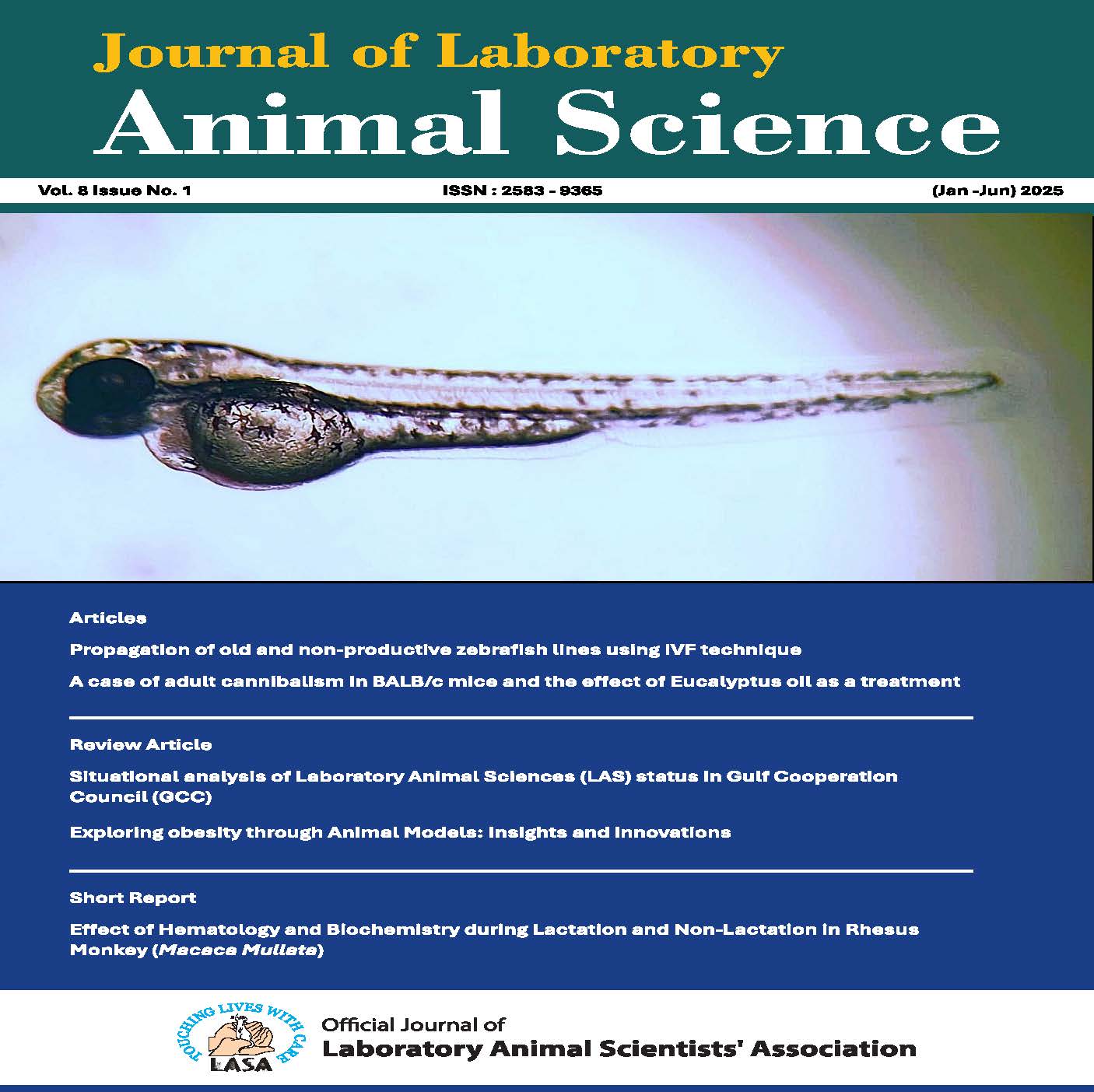A case of adult cannibalism in BALB/c mice and the effect of Eucalyptus oil as a treatment
DOI:
https://doi.org/10.48165/jlas.2025.8.1.2Keywords:
Adult BALB/c mice, cannibalism, Eucalyptus oil, vitamin-CAbstract
Eight-week-old male and female BALB/c mice that were procured and kept for quarantine experienced 10% mortality in males and 3.3% in females from the second day onwards with partially mutilated carcasses in both cages. Considering the stress due to travel Vitamin C was provided in the drinking water from day 4. The percentage of mortality was reduced as compared to the first day however mortality continued to 5th day. Furthermore, the application of eucalyptus oil in the cage and animal body surface of the animals for one week repeatedly results in a substantial decrease in % mortality in male and female mice.
Downloads
References
Burn CC, Mason, GJ (2008). Effects of cage-cleaning frequency on laboratory rat reproduction, cannibalism, and welfare. Appl. Anim. Behav. Sci. 114(1-2): 235-247.
Lacey JC, Beynon RJ, Hurst JL (2007). The importance of exposure to other male scents in determining competitive behaviour among inbred male mice. Appl. Anim. Behav. Sci. 104 (1-2):130 -142.
Gandelman R (1972). Induction of pup killing in female mice by androgenization. Physiol. Behav. 9(1): 101-102.
Mayntz D, Toft S (2006). Nutritional value of cannibalism and the role of starvation and nutrient imbalance for cannibalistic ten dencies in a generalist predator. J. Anim. Ecol. 75(1): 288-297.
Polis GA (1981). The evolution and dynamics of intraspecific preda tion. Ann. Revi. Ecol. Systems. 12(1): 225-251.
Rice ME (2000). Ascorbate regulation and its neuroprotective role in the brain. Tre. Neurosci. 23(5):209-216.
Rymer TL (2020). The Role of olfactory genes in the expression of rodent paternal care behaviour. Genes. 11(3):292. Zalaquett C, Thiessen D (1991). The effects of odors from stressed mice on conspecific behaviour. Physiol. Behav. 50(1):221-227

